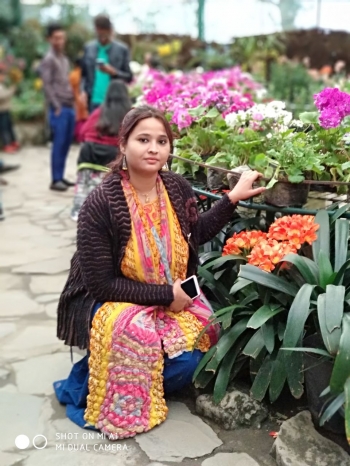
.jpg) F. M. Britto
F. M. Britto

The drunkard husband beat Firdaus every day. The young lady’s family members advised her to adjust with him for her sake and her two little children. Finally one day he set her ablaze. Being a man of influence, he got the case squashed. No one raised their voice.
But that incident worried Shahina Javed. How many Firadaus will go on getting killed by their husbands, she wondered.
Teenager Shahina had been watching in her Rajabazar locality of Kolkata how males torment their female family members. When Shahina questioned her parents the fate of the females in their Muslim community, she was told to shut her mouth and abide by the community’s norms. The paper-bags-making father and the house-wife mother trained their only daughter, born in 1989, to endure the inhuman tortures that will follow her after the marriage.
By joining an NGO, she became more aware of the violence women suffer. Shahina realized that in the name of her religion so many social restrictions had been imposed on women.
Since Shahina means bird, like a bird she wanted to fly. She refused to don their traditional hijab. While it angered her family and community, she stood undaunted. Though her father did not want her to study beyond metric, she persisted to pursue her Masters in Social Work from Calcutta University.
Braving to act against the injustices inflicted on the females, in 2009 she started in her locality ‘Roshni Centre’, an association of young girls and boys. Through awareness workshops she animated the girls about their basic rights, self-defense, higher studies and career.
They began to raise their voices against injustices done to women.
She then founded an all-women soccer team. That infuriated more the Muslim priests, scholars and men. “Girls too have a right to play,” she asserted. The team now has about 40 girls, including daughters of clerics, coached by a male foot-ball player. It has won many matches and awards.
Shahina and her centre were attacked when they informed the police about a child-marriage. “Getting scared and discontinuing our activities meant defeat,” she declared. “I have started my journey and have to go a long way. I am very optimistic. It might be difficult, yet not impossible,” she added.
Presuming that with political clout she can transform this patriarchal society, she contested the local election. But scared of this firebrand crusader, her four male opponents conspired together to defeat her. “But I will not give up. I will always raise my voice against any type of injustice against women,” she declared boldly.
“This brutality and injustice can only be stopped when society changes its views towards women,” she says. Shahina tells the girls not to wait for someone from above to come and deliver them from the clutches of persecutors. They need to redeem themselves. With Shahina’s guidance, lives of many women are getting changed.
Shahina confidently asserts, “We are a community of people making an effort towards this goal and we will reach our destinations soon.”
“Be the heroine of your life, not the victim,” says writer Nora Ephron.